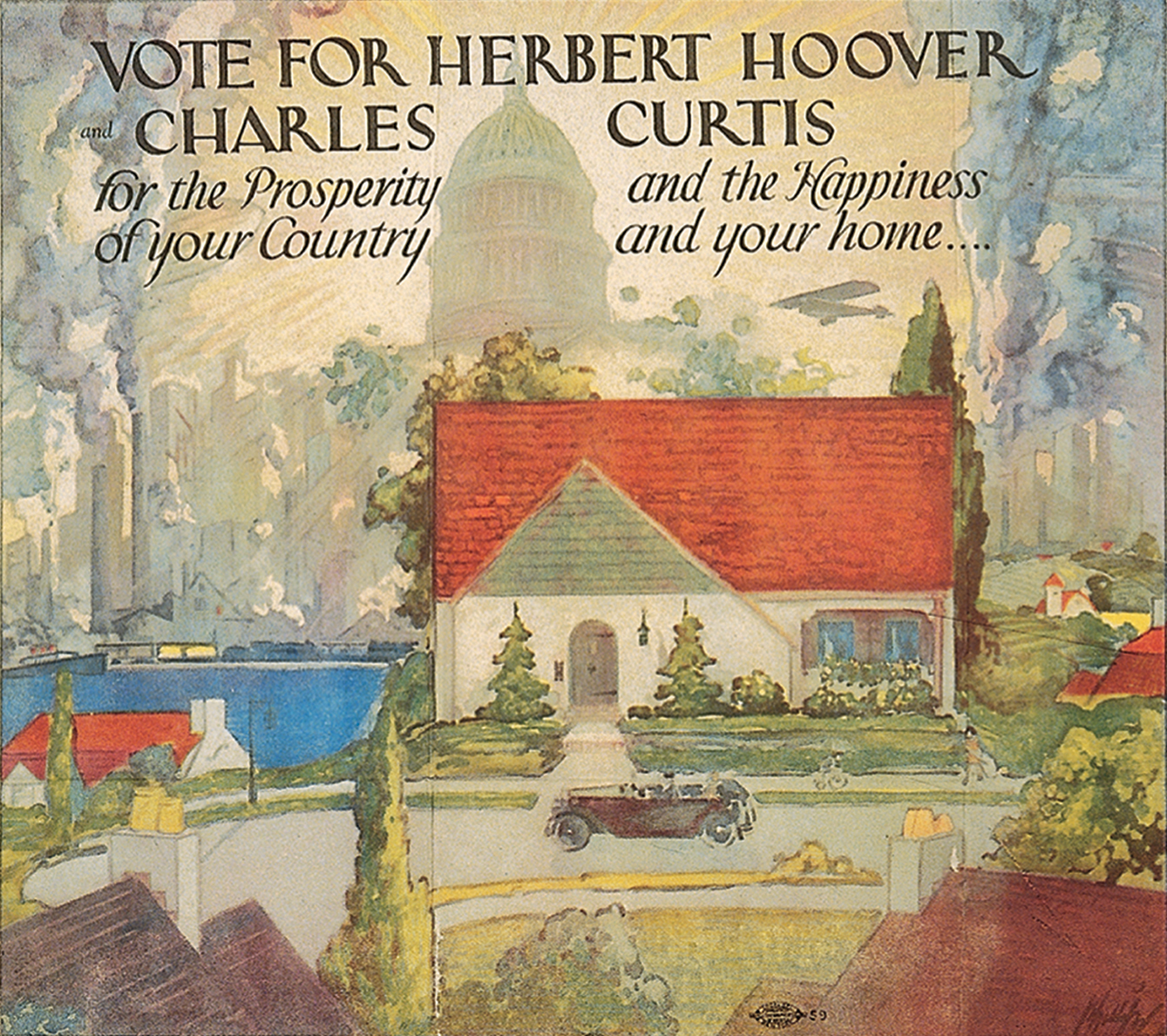Herbert Hoover: The Great Engineer.
Printed Page 640 Chapter Chronology
Herbert Hoover: The Great Engineer. When Herbert Hoover became president in 1929, he seemed the perfect choice to lead a prosperous business nation. His rise from poor Iowa orphan to one of the world's most celebrated mining engineers personified America's rags-to-riches ideal. His success in managing efforts to feed civilian victims of the fighting during World War I won him acclaim as "the Great Humanitarian" and led Woodrow Wilson to name him head of the Food Administration once the United States entered the war. Hoover's reputation soared even higher as secretary of commerce in the Harding and Coolidge administrations.

Hoover belonged to the progressive wing of his party. "The time when the employer could ride roughshod over his labor[ers] is disappearing with the doctrine of ‘laissez-faire' on which it is founded," he declared in 1909. He urged a limited business-government partnership that would manage the sweeping changes Americans were experiencing. Hoover brought a reform agenda to the White House: "We want to see a nation built of home owners and farm owners. We want to see their savings protected. We want to see them in steady jobs. We want to see more and more of them insured against death and accident, unemployment and old age. We want them all secure."
But Hoover also had ideological and political liabilities. Principles that appeared strengths in the prosperous 1920s — individual self-reliance, industrial self-management, and a limited federal government — became straitjackets when economic catastrophe struck. Moreover, Hoover had never held an elected public office, had a poor political touch, and was too thin-skinned to be an effective politician. Prophetically, he confided to a friend his fear that "if some unprecedented calamity should come upon the nation ...I would be sacrificed to the unreasoning disappointment of a people who expected too much." The distorted national economy set the stage for the calamity Hoover so feared.